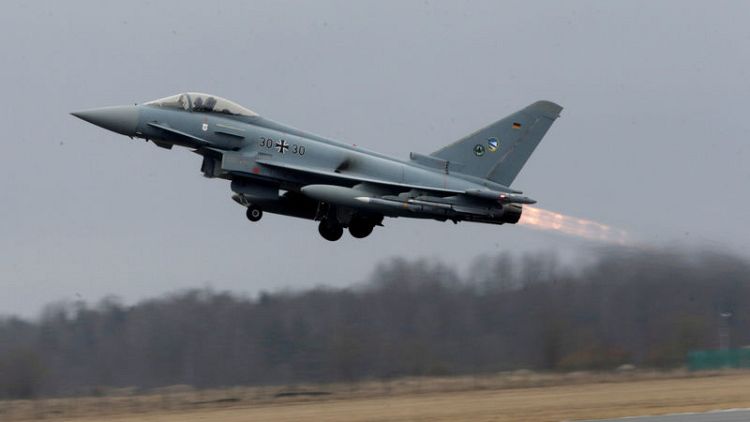BERLIN (Reuters) - European efforts to develop a next-generation military combat jet will end in disaster if individual governments insist on dictating specific suppliers or sites, the chief executive of European aerospace firm Airbus <AIR.PA> warned on Friday.
Airbus CEO Tom Enders told the Frankfurter Allgemeine Zeitung newspaper that a decision by Germany and France to develop a new "Future Combat Air System" was an important step towards expanding European defence cooperation.
He said Airbus and Dassault Aviation <AVMD.PA> had come to agreement surprisingly quickly on their respective roles in the fighter jet project, but warned governments against trying to influence the process.
"It will be a success if we don't let governments interfere with their demands for the use of specific suppliers and locations in certain countries. That will only lead to disaster," Enders told the newspaper.
Similar issues have cost Airbus dearly, said Enders, who has often criticised the way the multi-nation A400M military transport plane programme was structured when it began. Airbus took a further 1.3 billion euro (1.1 billion pounds) charge on the troubled programme in February.
"I hope that European companies will insist that future multilateral programmes have clear leadership structures and reasonable technical requirements and timetables," he told the newspaper.
Airbus, which builds the Eurofighter Typhoon, and Dassault, which builds the Rafale jet, signed an initial agreement in April to cooperate on the new air combat system, with an eye to replacing current fighter jets by around 2035-2040.
Enders also called for Germany to move forward more boldly on closer European defence integration, citing concerns about what he called the "deplorable" state of the German military after years of neglect.
One key step would be to introduce majority-rule decisions in European foreign policy, replacing the current requirement for unanimous decisions, Enders said.
"Europe can only safeguard its interests if it is unified. It's burning all around us," the Airbus executive said, citing escalating tensions with the United States, difficult ties with China and Russia, and increasing tensions within the EU itself.
He urged EU officials and member countries to focus less on EU budget debates and more on strengthening security, securing Europe's borders and moving forward on a joint foreign and defence policy.
The EU also needed to look at tax cuts pushed through by U.S. President Donald Trump that were providing a big incentive for companies to invest there, he said.
"If we in Europe continue to have high government spending and thereby high taxes, we will fall behind," he said. "The low tax rates and the threatened protectionism are a strong incentive to invest more there."
(Reporting by Andrea Shalal; Editing by Mark Potter)



